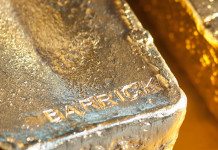
[miningmx.com] — FIRST Uranium CEO Deon van der Mescht has said delivery on three key issues would bring a turnaround in the company’s collapsing share price, which has tumbled to a new all-time low following the release of the group’s interim results.
First Uranium’s JSE-listed shares have lost around 80% of their value during the past 12 months, trading for the first time below 200c on Tuesday. This valued the company at just over R500m, half its worth compared to when AngloGold Ashanti bought a 20% stake in July for R205m. It is also staggeringly low should one consider that its most promising subsidiary, Mine Waste Solutions (MWS), has to date gobbled up more than R3bn in capex. The shares’ current 12-month high is R10.40.
The most pressing issue which loomed over First Uranium’s shares, according to Van der Mescht, was the ongoing uncertainty over how the company would honour its two series of convertible notes, totalling C$172m and C$150m respectively. The C$150m series would mature in July and the interim results have all but confirmed First Uranium’s inability to pay for those notes from internal revenue sources.
“The worst case scenario is to convert those notes to shares,’ Van der Mescht told Miningmx. “The dilution will be massive and is completely undesirable.
“We are negotiating with note holders on how we can refinance those in a way that is good for the company, but also worth their while.’
The company’s bank balance at the end of September was $15.1m, after burning $9.9m in the year to date. Van der Mescht said it would be enough to see the company through the rest of the year when ramped up production was expected to be cash generative. Ezulwini was unable to meet its contribution to revenues in the first half of the year due to two safety stoppages following fatalities.
First Uranium has already revised the mine’s target down from between 105,000oz and 125,000oz, to 70,000oz, but management is unsure how Monday’s latest fatality would affect the group’s ability to achieve this. Production for the year to date was less than 26,000oz.
“The setbacks at Ezulwini were a great disappointment to us,’ Van der Mescht said, identifying the mine’s performance as another shareholder concern. He said First Uranium was confident it could improve on this, adding that the loss in revenue resulting from the Franco Nevada hedge would be significantly reduced from January 2012.
Ezulwini has to deliver 19,660oz of gold to Franco Nevada at $400/oz in terms of an earlier financing deal. As from 2012, the burden would lessen to 7% of production for the life of the mine, also at $400/oz.
DMR STANDOFF
Van der Mescht highlighted the ongoing standoff between MWS and the department of mineral resources (DMR) as another drag on the company’s shares, although, in his opinion, the threat was more a perception than real.
The DMR notified MWS in September that it has withdrawn the company’s mining right. First Uranium always maintained that it didn’t need a mining right for surface operations, saying this was regulated by the National Water Act, the National Environmental Management Act as well as the National Nuclear Regulator. It has subsequently continued with operations at MWS.
Van der Mescht said MWS was busy finalising a new order right for the mine dumps despite its view of the law – a similar approached followed by other surface operators like DRDGold – when it had received the “withdrawal’ notice from the DMR.
The right was already granted in 2009, but still had to be executed.
Van der Mescht said shareholder concern was the overriding factor why the company would continue to engage the DMR about the issue.
“That’s the reason why we’ve said we’re still intent of solving this one way or the other,’ he said. “We want to put this in bed and has a strategy to do exactly that.’
He didn’t want to elaborate on this strategy, except for saying it would be communicated to shareholders soon.










